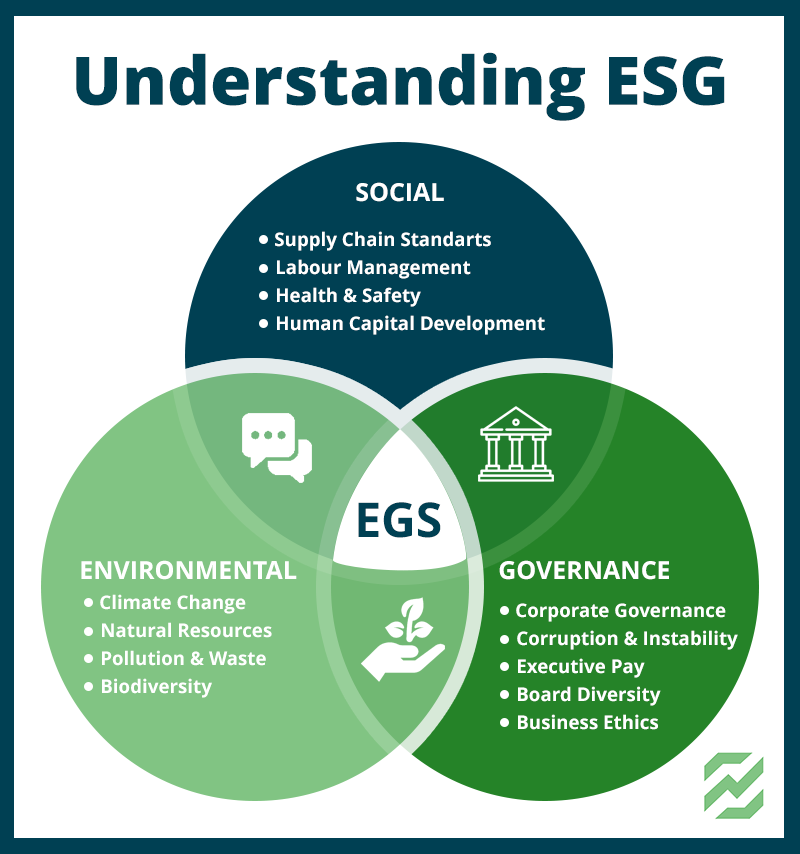In an era where conscience and capitalism intersect, ESG (Environmental, Social, and Governance) investing has emerged as a compelling way to grow wealth while aligning investments with personal values and societal good. This article takes a deep dive into ESG funds, unveiling how they blend profit and principles, and why they are reshaping the landscape of ethical investing.
Understanding ESG: Beyond the Acronym

ESG investing evaluates companies based on three key criteria:
- Environmental (E): Assessing a company’s environmental impact, including its carbon footprint, resource management, and efforts to reduce pollution. For example, a company that commits to renewable energy sources or efficient waste management practices may score higher in this category.
- Social (S): Gauging a company’s treatment of its employees, impact on local communities, and its role in promoting diversity and inclusion. This could involve analyzing labor practices, workplace safety, or community engagement initiatives.
- Governance (G): Evaluating a company’s leadership, ethics, and transparency. Factors might include the structure of the board of directors, executive compensation, and adherence to ethical standards.
Profit Meets Principles: The Advantages of ESG Investing
- Risk Mitigation: ESG investing considers factors that traditional financial metrics often overlook. Companies with strong ESG practices are generally better equipped to manage risks, such as regulatory fines or reputational damage, which can affect long-term financial performance.
- Alignment with Values: ESG investors have the satisfaction of knowing that their investments support causes they believe in. For instance, investing in a company with a strong ESG record may mean contributing to clean energy initiatives or social equality.
- Long-Term Growth: Research indicates that ESG-focused companies are more likely to thrive in the long run. For example, businesses that prioritize environmental sustainability are better positioned to adapt to changing regulations and consumer preferences.
The ESG Investment Landscape: Mutual Funds, ETFs, and More
Investors can access ESG opportunities through various financial instruments, including:
- ESG Mutual Funds: These actively managed funds invest in a diversified portfolio of stocks or bonds that meet specific ESG criteria. For instance, the Vanguard FTSE Social Index Fund focuses on companies with strong social and governance practices.
- ESG Exchange-Traded Funds (ETFs): ESG ETFs provide a passive investment approach, tracking an ESG-focused index. The iShares ESG MSCI USA ETF, for instance, follows an index of U.S. companies that excel in ESG factors.
- Impact Investing: This takes ESG investing a step further, targeting companies and projects with a clear social or environmental mission. Examples include funds that invest in affordable housing or clean energy initiatives.
The Ripple Effect: Beyond Your Portfolio
By investing in ESG funds, individuals become part of a larger movement influencing corporate behavior. As more investors demand responsible practices, companies face increased pressure to improve their ESG performance, which, in turn, can lead to positive societal change.
Conclusion:
ESG investing is not a trade-off between profit and principles; it’s a fusion of both. It enables investors to grow their wealth while promoting ethical and sustainable business practices. The rise of ESG funds underscores the belief that profitability and social responsibility can coexist, offering investors a way to make a financial impact and a positive difference in the world.







